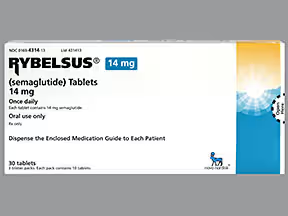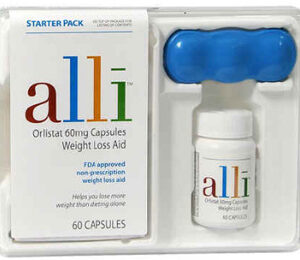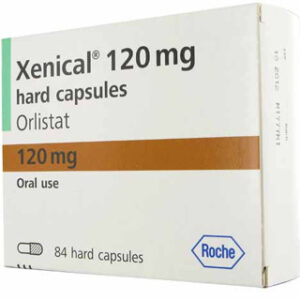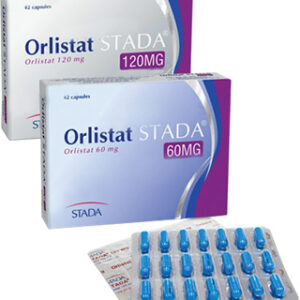Introduction to Orlistat
Orlistat is a potent medication designed specifically for weight management. By blocking the absorption of dietary fats at the gastrointestinal level, it reduces caloric intake, which can significantly aid in weight loss. Orlistat is available in both prescription-strength and over-the-counter options, making it accessible for those committed to a comprehensive weight management plan that includes a reduced-calorie diet and exercise.
Mechanism of Action
Orlistat functions by forming a covalent bond with the active serine residue of gastric and pancreatic lipases in the stomach and small intestine. This binding inactivates the enzymes, preventing them from hydrolyzing ingested fat into absorbable free fatty acids and monoglycerides. As a result, undigested fats pass through the GI tract and are excreted, thus reducing caloric intake.
Indications and Usage
Orlistat is approved for weight loss in adults aged 18 and older who are overweight, with a body mass index (BMI) of 30 kg/m² or higher, or 27 kg/m² or higher in the presence of other risk factors such as hypertension, diabetes, or dyslipidemia. It is intended for use alongside a reduced-calorie, low-fat diet to maximize weight loss effectiveness.
Dosage and Administration
Orlistat is administered as follows:
Dosage Table:
| Form | Strength | Administration | Notes |
|---|---|---|---|
| Prescription | 120 mg | Three times a day with each main meal containing fat | If a meal is missed or has no fat, skip dose |
| Over-the-Counter | 60 mg | Up to three times a day before, during, or up to one hour after a meal | Same as above; adjust based on meal content |
Additional Notes for Dosage Table:
- Optimal Usage: For best results, distribute fat intake evenly across meals. Orlistat works by blocking the absorption of fat, so if a meal contains no fat, taking Orlistat is unnecessary and will not have any added benefit.
- Timing: The timing of the dose relative to mealtime is crucial. If taking the dose post-meal, ensure it is within an hour to maximize the fat-blocking effect.
- Dietary Considerations: While on Orlistat, maintain a well-balanced, reduced-calorie diet that contains approximately 30% of calories from fat. Overconsumption of fat in a meal can increase the risk of gastrointestinal side effects.
- Supplementation: Due to Orlistat’s mechanism of action affecting fat-soluble vitamin absorption, take a multivitamin supplement containing vitamins D, E, K, and beta-carotene once daily, at bedtime or at least two hours before or after taking Orlistat.
- Consistency: Consistent use in conjunction with meals is key to the effectiveness of Orlistat. Inconsistent usage or skipping doses can reduce its efficacy in weight management.
By adhering to these guidelines and recommendations, patients can enhance the effectiveness of Orlistat and achieve more favorable weight loss outcomes while minimizing potential side effects.
Contraindications
Orlistat is contraindicated in individuals with chronic malabsorption syndrome, cholestasis, or hypersensitivity to any component of the product. It should also be used with caution in patients with a history of hyperoxaluria or calcium oxalate nephrolithiasis.
Adverse Reactions
Common adverse effects include gastrointestinal symptoms such as oily or fatty stools, flatulence with discharge, fecal urgency, and oily spotting. Less frequently, users may experience systemic effects such as headaches, menstrual irregularities, or fatigue. Serious but rare reactions include liver injury and kidney issues, which necessitate immediate medical attention.
Drug Interactions
Orlistat can interact with cyclosporine, levothyroxine, warfarin, and antiepileptic drugs. It may also impede the absorption of fat-soluble vitamins, requiring possible supplementation or adjustments in other medications.
Precautions
Monitoring is advised for signs of liver disease, kidney stones, or malnutrition, particularly due to fat-soluble vitamin deficiencies. Those with thyroid or cardiovascular conditions should consult healthcare providers before use.
Use in Specific Populations
Orlistat is not recommended for use during pregnancy or breastfeeding due to insufficient safety data. Its safety in pediatric populations under 18 has not been established.
Overdose Management
Overdosing on Orlistat is not typically associated with serious outcomes, given its minimal systemic absorption. However, supportive care and monitoring are recommended in case of overdose.
Clinical Pharmacology
Orlistat’s activity is localized within the gastrointestinal tract, where it prevents the absorption of dietary fats, thereby reducing calorie intake without systemic effects.
Pharmacokinetics
The systemic absorption of Orlistat is minimal, with most of the drug remaining within the gastrointestinal tract and being excreted unchanged in the feces, highlighting its safe profile.
Efficacy Studies
Clinical trials demonstrate that Orlistat effectively promotes weight loss and maintenance, particularly when combined with lifestyle adjustments, compared to diet alone. It also shows potential in improving obesity-related risk factors.
Storage and Handling
Orlistat should be stored at room temperature, 25°C (77°F), with allowed excursions between 15°-30°C (59°-86°F). Keep the medication in its original container, away from moisture and out of reach of children.
Patient Counseling Information
Patients should be counseled on the importance of adhering to a balanced, reduced-calorie diet, the potential side effects of Orlistat, and the necessity of taking a daily multivitamin supplement at least two hours before or after taking Orlistat, or at bedtime, to ensure adequate vitamin intake.





Reviews
There are no reviews yet.